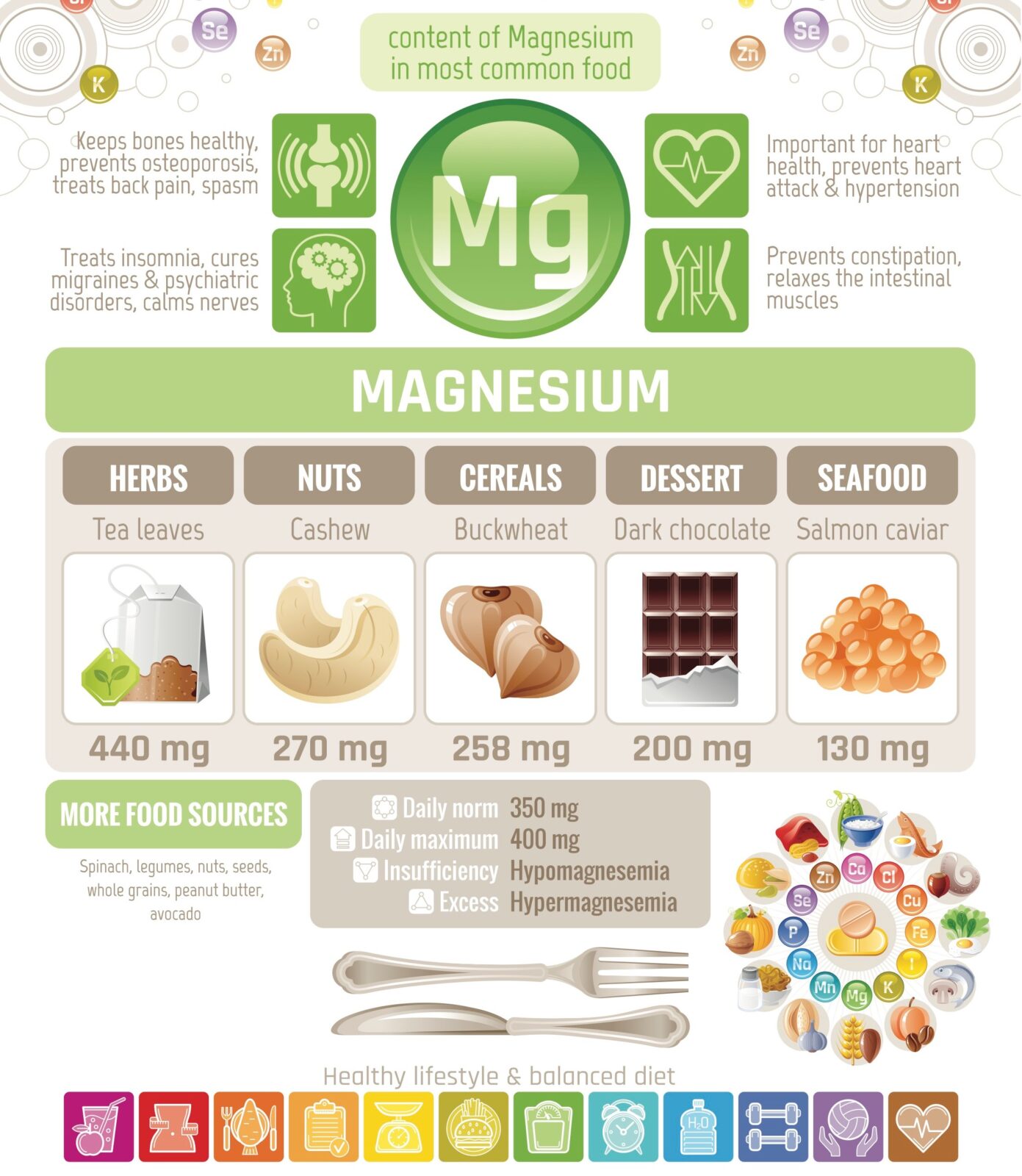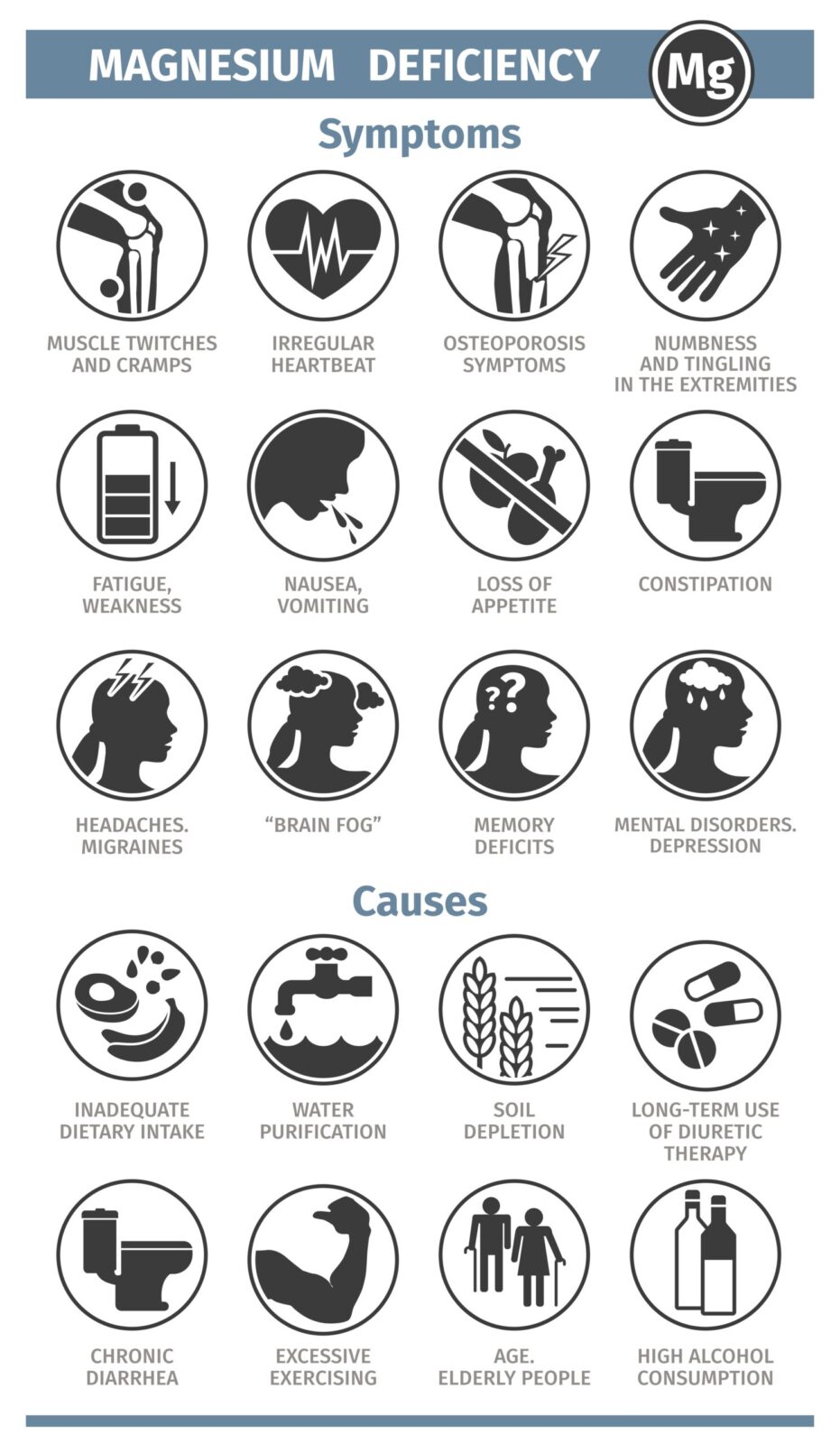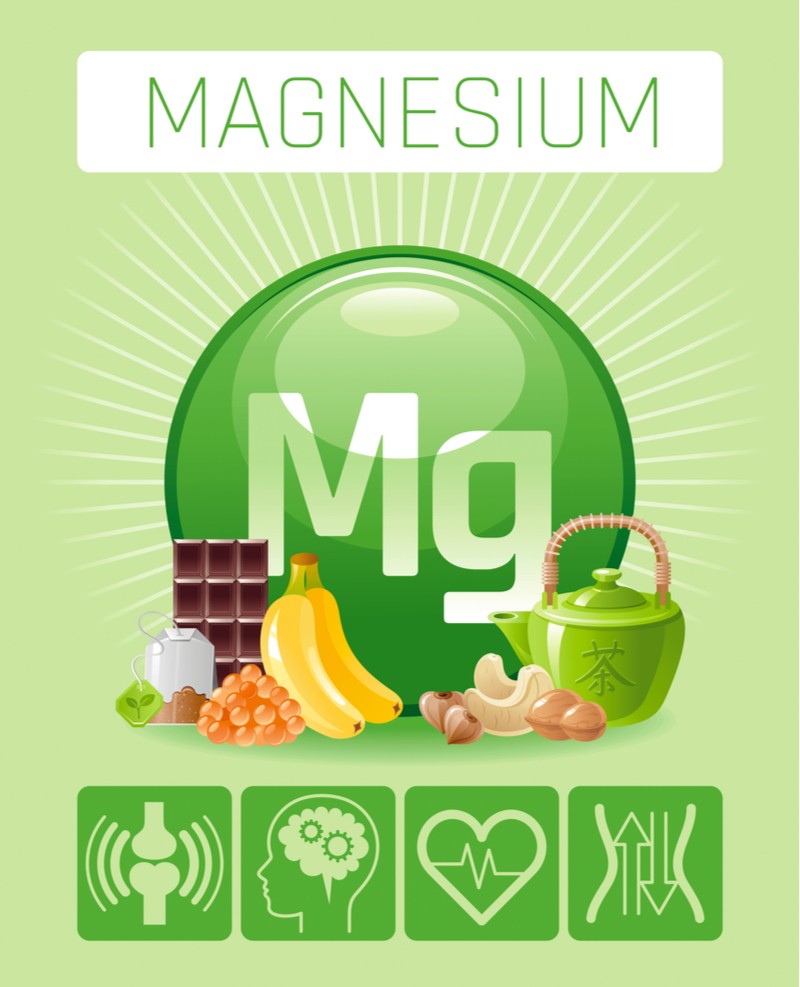Role of Magnesium in the body




Magnesium is one of the many minerals that are essential in improving overall health. It is known as the fourth most abundant mineral found in the human body. Around 50 percent of the magnesium in the body can be found in the bones. Magnesium is also important in protein and fatty acid formation, making new cells, activating B vitamins, relaxing muscles, clotting blood, and forming ATP (energy the body requires). Insulin secretion and function also require magnesium.
Magnesium is a ubiquitous mineral that has been found in abundance in the human diet for countless generations. Over the past half century, this essential nutrient has been systematically weaned from the vast majority of leafy greens and vegetables due to poor soil conditions and the rapid rise in consumption of processed foods where any required nutrients have been removed.
Our intake of this essential mineral has declined sharply due to modern day food processing which can strip away up to 80% of the magnesium. And the reliance on fast foods, in place of mixed diets containing green vegetables greatly reduces magnesium intake. Official figures show that up to 72% of women and 42% of men receive less than the recommended level of magnesium.
Research from around the world is implicating magnesium intakes with a range of health issues including the health of the heart, the loss of bone strength as we age, health of the lungs, our vitality and energy levels and, in women, the monthly changes of hormone levels.
Magnesium has several important metabolic functions. It plays a role in the production and transport of energy. It is also important for the contraction and relaxation of muscles. Magnesium is involved in the synthesis of protein, and it assists in the functioning of certain enzymes in the body.
Magnesium is an essential mineral required to perform more than 300 critical biochemical enzymatic reactions within the human body. Optimal circulating magnesium levels are well known to promote cardiovascular health.
Not all magnesium supplements are created equal. There are many different forms of magnesium, each with a varying degree of absorbability and side-effects. For optimal health, many doctors recommend a daily intake of at least 500 milligrams of magnesium.
Cheaper forms of magnesium such as magnesium oxide or magnesium chloride which are found at most grocery stores, drug stores and health food stores make it very difficult to take a full 500mg’s without the side-effects of stomach rejection and diarrhea.
Colloidal Magnesium however is easy on your stomach, and also safe and super absorbent.
Toxic symptoms from increased magnesium intake are not common because the body eliminates excess amounts. Magnesium excess almost always occurs only when magnesium is supplemented as a medication.
Benefits:
Promotes the relaxation of muscles and eases athletic injury.
Promotes the Boost of energy and the reduction of fatigue.
Promotes healthy, restful sleep.
Promotes healthy blood sugar levels within normal limits.
Dissolves calcium build-up in joints, muscles and arteries.
Promotes the lessening of headaches.
Promotes the reduction of symptoms of PMS.
Purchase Your Magnesium Electrodes From Biophysica Today!
It is always best to notify a doctor at the first sign of any infection to avoid possibly serious complications. By working directly with the doctor, most infections can easily be treated.
